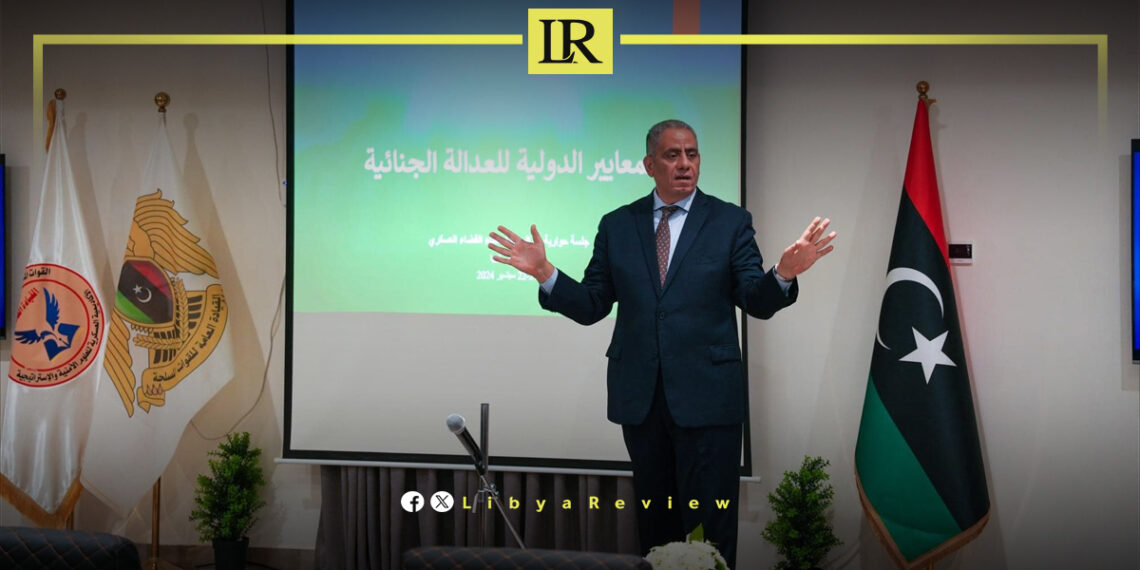The Military Academy for Security and Strategic Sciences in Al-Rajma, under the supervision of the International Humanitarian Law Committee of the General Command, in cooperation with the United Nations Mission in Libya, organized a two-day workshop on September 21-22, 2024.
The workshop, titled “National, International, and Regional Mechanisms Related to Human Rights,” focused on training and enhancing the capabilities of members of the military judiciary and prosecution within the Libyan Armed Forces.
This initiative is part of ongoing efforts to strengthen cooperation between relevant authorities and improve the legal skills of military judiciary personnel in line with international human rights standards.
Libya has been in chaos since a NATO-backed uprising toppled longtime leader Muammar Gaddafi in 2011. The county has for years been split between rival administrations.
Libya’s economy, heavily reliant on oil, has suffered due to the ongoing conflict. The instability has led to fluctuations in oil production and prices, impacting the global oil market and Libya’s economy.
The conflict has led to a significant humanitarian crisis in Libya, with thousands of people killed, and many more displaced. Migrants and refugees using Libya as a transit point to Europe have also faced dire conditions.
The planned elections for December 2021 were delayed due to disagreements over election laws and the eligibility of certain candidates. This delay has raised concerns about the feasibility of a peaceful political transition.
Despite the ceasefire, security remains a significant concern with sporadic fighting and the presence of mercenaries and foreign fighters. The unification of the military and the removal of foreign forces are crucial challenges.


